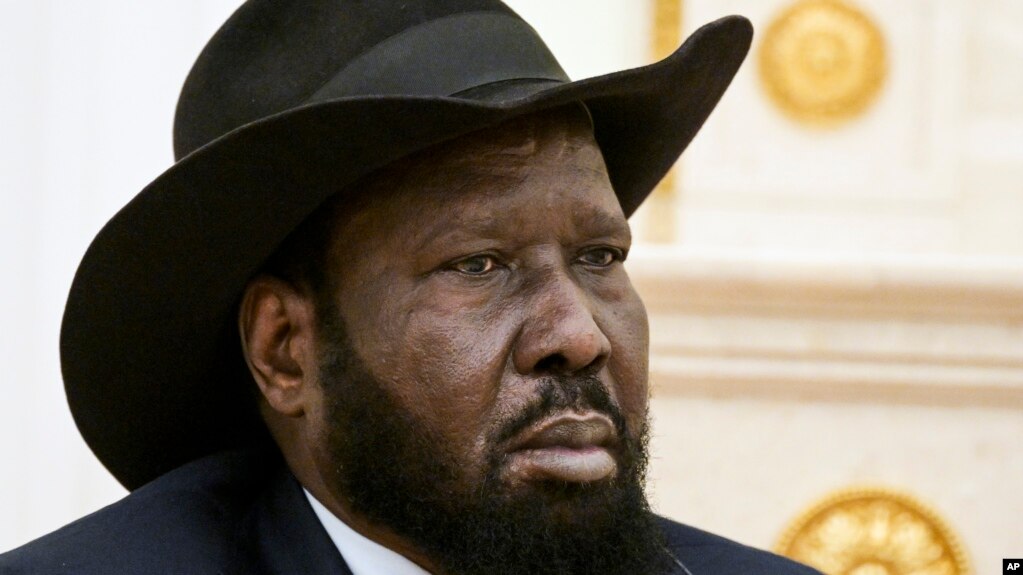South Sudan’s President Salva Kiir Mayardit has appointed a new deputy minister of defense and a new commander for the elite presidential guard unit, according to decrees broadcast on state television.
The moves, announced Monday night on the South Sudan Broadcasting Corporation, are the latest in a series of government reshuffles.
Kiir appointed Gen. James Koang Chuol, a member of the ruling SPLM, as the new deputy defense minister. Koang was removed from his position as governor of Upper Nile state last week. The deputy defense minister post had been vacant since March 2023, when Kiir fired the previous deputy, Gen. Chol Thon Balok, and promoted him to defense minister.
The position was initially expected to be allocated to the main opposition group, the SPLM-IO, led by First Vice President Riek Machar, as part of the country’s power-sharing agreement. That expectation arose after Kiir took direct control of the defense ministry and removed Machar’s wife, Angelina Teny, as defense minister in a previous cabinet shake-up.
In a separate decree, Kiir promoted Brig. Gen. Valentino Baak Makuei to the rank of major general and assigned him to command the Presidential Guard Unit, also known as the Tiger Division. He replaces Gen. Philip Nyon Nyon, who was appointed to the role in May. Gen. Baak was President Kiir’s aide-de-camp.
The presidential guard unit, based in Juba, is tasked with protecting the president. It was expanded into a division-sized force after the outbreak of civil war in 2013 and is now one of the most significant formations within the South Sudan People’s Defense Forces (SSPDF).
Kiir also fired Deng Alor Kuol as minister for East African Community Affairs. Deng, a veteran politician representing the Former Detainees group in the unity government, was replaced by Bany Gideon Mabor.
Consolidation of power
James Boboya, a Juba-based policy and political analyst, criticized the decrees, describing them as part of Kiir’s strategy to consolidate a one-party state under the guise of the 2018 peace agreement.
“The peace agreement is being ‘covered under the table’ and used merely as a façade for Kiir’s continued dominance and consolidation of power,” Boboya told Radio Tamazuj.
He argued that Kiir’s leadership style centers on weakening individuals before appointing them to key positions to ensure their loyalty. Boboya cited Gen. Koang’s appointment as deputy defense minister as an example, calling it symbolic rather than reform-driven.
“The new deputy lacks real authority and merely serves under Kiir’s close supervision, with the Ministry of Defence now functioning as an arm of the president’s party rather than a peace-implementation body,” Boboya said.
Regarding the change in command of the Tiger Division, Boboya interpreted the reshuffle as a tactic to prevent any military officer from gaining too much influence.
“By rotating commanders of the Tiger Division frequently, the president weakens the army’s internal cohesion, ensuring no one can challenge his authority,” he said. “This tactic perpetuates instability and entrenches Kiir’s rule.”
On the new Minister for East African Community Affairs, Boboya acknowledged Bany Gideon Mabor’s competence but questioned whether he would have genuine decision-making power.
He warned that without autonomy, the Ministry of the East African Community Affairs could become “another avenue for personal gain rather than national benefit.”




